Essays by The Clever Catholic
Enjoy!

When I make out my annual spiritual profit and loss statement for my soul’s fiscal year that begins in Advent, I’m always reminded of the parable of the dishonest steward (Lk 16:1-13). The dishonest steward knows he’s being canned for previously squandering his boss’ property. Rather than dig ditches or beg, he makes the shrewd move to eliminate his commissions on sales so that the delighted buyers might “welcome him into their homes.” And he charged big commissions, up to 100%. "The dishonesty of the steward consisted in the squandering of his master's property and not in any subsequent graft" (New American Bible commentary). Rather, his master commends him for his financial prudence, taking strategic losses now for possible gains later. Our Lord’s financial advice is to “store up treasures in heaven, where neither moth nor decay destroys, nor thieves break in and steal” (Mt 6:20). Let’s run our spiritual life then, like a Schwab portfolio. We need to be as spiritually savvy as the worldly are worldly: “For the children of this world are more prudent in dealing with their own generation than are the children of light” (8b). The world’s bumper sticker says, “Whoever dies with the most toys wins.” Ours should say, “Whoever dies with the most Communions wins.” Receiving Holy Communion as often as possible is obviously the biggest bang for our spiritual buck, physically and spiritually uniting with God, yielding the highest ROI (return on investment), easily beating the S&P 500. What's beautiful about the Catholic Church is that there are Masses going on all over the world all the time. The sun never sets on the Mass. Go to daily Mass to financially make a killing. If you can't get to daily Mass, make spiritual Communions to score some moolah. Bring home the bacon with Eucharistic Adoration, bankrolling heavenly greenbacks hand over fist. Reading sacred scripture, of course, is another way to put on the mind of Christ and earn beaucoup bucks. Praying the rosary is a cash cow. In every Hail Mary, we say Jesus and Mary are blessed, affirm his divinity, admit we’re sinners, and ask Mary, the Mother of God, to pray for us. It’s like hitting heaven’s lotto. As members of “a royal priesthood” (1 Pt 2:9) we can offer up in sacrifice our little annoyances and our real challenges as we take up our cross daily, to receive a treasure trove of grace. "For where your treasure is, there also will your heart be" (Mt 6:21). The next paper will cover the sin of spiritual greed. (I couldn’t resist.)

For Catholics, in the hierarchy of truths, the highest truth, and the toughest one to explain--next to the Eucharist--is the Trinity. “The mystery of the Most Holy Trinity is the central mystery of Christian life and faith” (Catechism of the Catholic Church 234). Only because God revealed that he’s three distinct Persons with one nature would we know it. But we could fumble if we think that because the Father, Son, and holy Spirit each possess the divine nature, we believe in three Gods. And there are many other heresies we could fall into. We must, therefore, define and make the distinction between person and nature. Defining person is easy. Not every being is a person. Only rational beings are persons. Persons are who we are. You’re you and I’m me. Nature is what we are. By our nature, we do what we do. “We can laugh and cry and walk and talk and sleep and think and love. All these and other things we can do because as human beings we have a nature which makes them possible. A snake could do only one of them--sleep. A stone could do none of them. Nature, then, is to be seen not only as what we are but as the source of what we can do. But although my nature is the source of all my actions, although my nature decides what kind of operations are possible for me, it is not my nature that does them: I do them, I the person" (Frank Sheed, Theology and Sanity , 1946). God’s nature is the total possession of divinity. Because Father, Son, and Spirit each possess the fullness of God, their nature is exactly the same. The Son, therefore, is everything the Father is, except being the Father: “If you know me, then you will also know my Father" (Jn 14:7), for in Christ "dwells the whole fullness of the deity bodily“ (Col 2:9). "Thus, the one, infinite, divine nature is totally possessed by three distinct persons. Here we must be quite accurate: the three persons are distinct, but not separate; and they do not share the divine nature, but each possesses it totally” (Sheed, 1946). Because the three Persons each possess only one, identical, divine nature, there is only one God. You and I have a human nature, but it’s not exactly the same. We think, love, talk, etc., differently. The Trinity is like three laptops plugged into one mainframe computer. All three laptops are distinct, but really there is only one computer. Each laptop, or Person, though, possesses the fullness of the total nature of the one infinite mainframe, God.
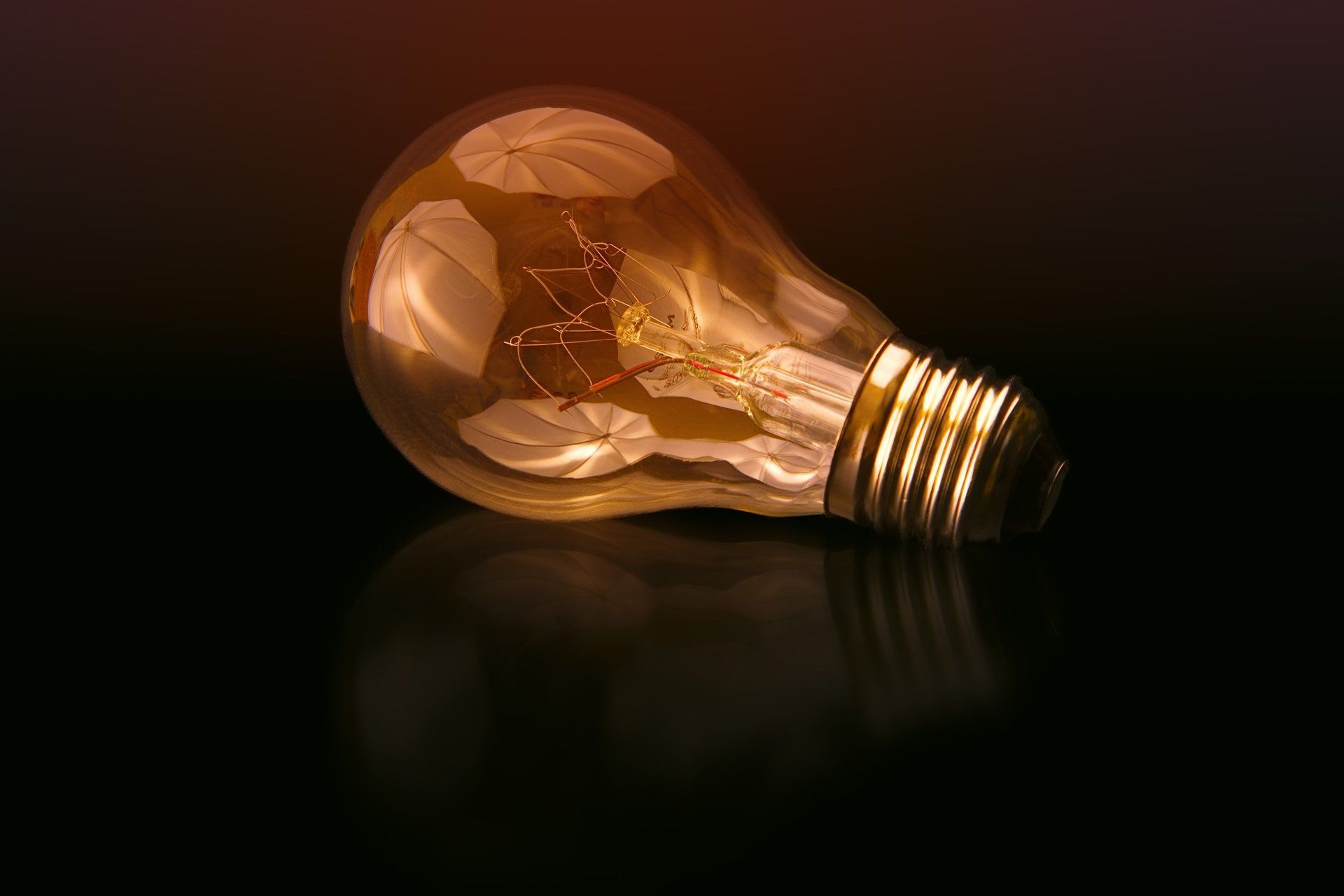
In the beginning was the Word, and the Word was with God, and the Word was God. --John 1:1 These ideas are Frank Sheed’s, British founder of the Catholic Evidence Guild, of which I was a member. Besides being an acclaimed author, Sheed was a street corner preacher. After taking classes at the seminary, the NYC Guild would meet at Washington Square Park in Manhattan. Then, one by one, we would present our assigned topic to passersby. If people had questions, members would pull them aside. It was a fun and fascinating experience, like being with St. Paul at the Areopagus (Acts 17:22). From Sheed's book, Theology for Beginners , 1957, abbreviated and slightly expanded on: The truth, that Father and Son possess the one same nature, might remain wholly dark to us if St. John had not given us another term for their relation—the Second Person is the Word of the First. God utters a Word—not framed by the mouth of course, for God has no mouth. He is pure spirit. So it is a word in the mind of God, an Idea. It is the Idea he produces of himself. But the Idea that God has of himself cannot be imperfect. Whatever is in the Father must be in his Idea of himself, and must be exactly the same as it is in himself. Otherwise God would have an inadequate Idea of himself, which would be nonsense. Thus, because God is infinite, eternal, all-powerful, his Idea of himself is infinite, eternal, all-powerful. Because God is God, his Idea is God. The Father knows and loves; so, his Idea knows and loves. In other words, the Idea is a Person. God's Idea of himself is not something only, it is Someone: for it can know and love. Hence, the Son--the Father's Idea of himself--is everything the Father is, except being the Father. "If you know me, then you will also know my Father" (Jn 14:7). The Son, therefore, is "the refulgence of the Father's glory" (Heb 1:3a), the full light of God the Father, reflected in God the Son, who is the very imprint of the Father's being (Heb 1:3b). Jesus is thus "the image of the invisible God" (Col 1:15). The Thinker and the Idea are distinct, the one is not the other, Father and Son are two Persons. But they are not separate. An Idea can exist only in the mind of the Thinker. Each possesses the divine nature, but each is wholly himself, conscious of himself as himself, of the other as other. Among men, fathers are always older than sons. But God has not to wait for a certain amount of eternity to roll by before he can be a Father. Eternity does not roll by; it is an abiding Now. Merely by being God, he knows himself with infinite knowing power, and utters his infinite self-knowledge in the totally adequate Idea of himself which is his co-eternal Son. The Father can think you out of existence (which he won't), but he can't think the Son out of existence. The Son is a given, the Father's eternal generation of the Son, an inevitability. The closest we get to an animated idea of self is when we dream. In dreaming, we generate an idea of self that can be quite convincing until we awaken. But it's at that moment of awakening when we see our self and our idea of self as distinct entities. There is one huge and instant difference, however, between God’s Idea and any idea we may form. His is Someone, ours is only something. God’s Idea is Someone, and an infinite Someone; between Thinker and Idea there is an infinite dialogue, an infinite interflow. Father and Son love each other, with infinite intensity. What we could not know, if it were not revealed to us, is that they unite to express their love, and that the expression is a third Divine Person. In the Son, the Father utters his self-knowledge; in the holy Spirit, Father and Son utter their mutual love. Their love is infinite; its expression cannot be less. Each gives himself wholly to the outpouring of his love for the other—holding nothing back. The uttered love of Father and Son is infinite, lacks no perfection that they have, is God, a Person, Someone. After all, "God is l ove" (1 Jn 4:16b), Love is God, Personified. As this one great operation of spirit, knowing, produces the Second Person, so the other, loving, produces the Third. The Second proceeds from, is produced by, the First alone; but the Third, the holy Spirit, proceeds from Father and Son, as they combine to express their love. No one says it quite like Frank. "The grace of our Lord Jesus Christ and the love of God and the fellowship of the holy Spirit be with you all" (2 Cor 13:13).
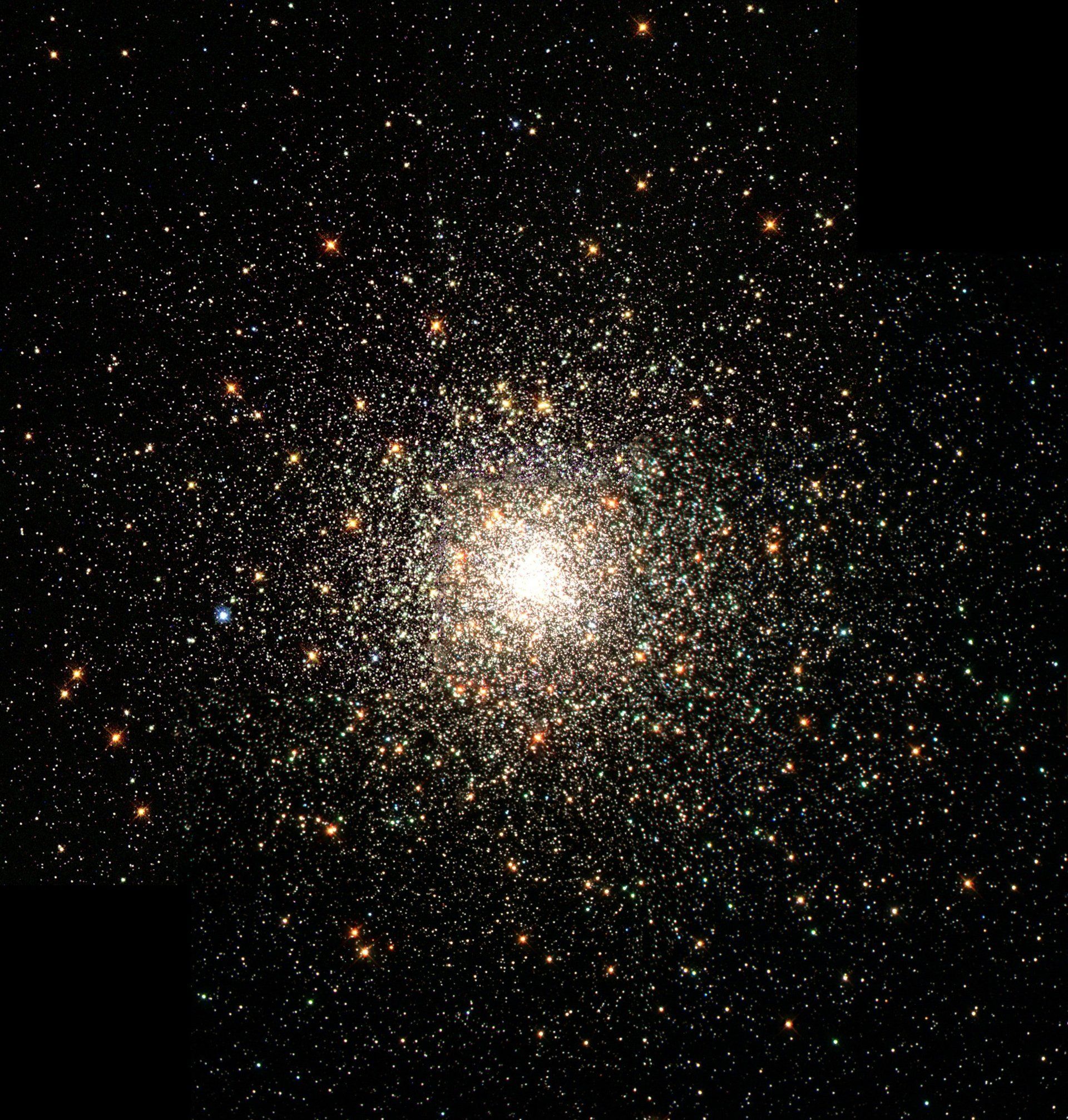
Though God is not in science’s purview or vocabulary, science can lead us to God. The Big Bang, everything from nothing; the subsequent order and maintenance of the universe; and life and its evolution all prove God. A bit of science distances one from God, but much science nears one to Him. --Louis Pasteur By the Lord's word the heavens were made. For he spoke, and it came to be. -- Psalm 33:6a, 9a Belgian Jesuit Fr. Georges Lemaître was the first to propose the Big Bang theory. Einstein didn't believe it (at first). Cosmologist Sir Fred Hoyle pejoratively named it the Big Bang. Until 1927, scientists thought matter always existed, Hoyle's Steady-state theory. The easy way out. I bought an astrophysics text from 1930 with an addendum saying the universe may have a beginning and be expanding, but we’re not yet sure. For if 13.8 billion years ago, the still-expanding, 93-billion-lightyear-wide universe exploded from a single point billions of times smaller than a proton! which it did, then scientists have a problem not acknowledging that an independent force outside the universe, outside time and space because they did not yet exist--also known as God--created the universe. What Is the Big Bang Theory? diameter of the universe And this infinitesimal point, an infinitely dense "singularity," contained all the matter in the universe ( Stephen Hawking, A Brief History of Time , New York: Bantam Books, 1988, p.49 ). The reason science cannot go back any further is because before the singularity was nothing. Science can't study "nothing," no time and no space. Everything from nothing is Creation. To say that everything, two trillion galaxies averaging 100 billion stars each, came from nothing--on its own--is preposterous. God made the Big Bang go bang. Because God is beyond the scope of science, some scientists just dismiss God, despite compelling evidence to the contrary. They're too smart for God. Instead of being the smartest guys in the room, they have to be the smartest guys in the universe. At least they're honest about their discoveries. Philosophers (good ones) always knew the universe had a beginning, i.e., came from nothing. For if the universe always existed, then it goes back an infinite amount of time. However, if the universe goes back forever, it could never reach the present, which it's obviously reached, as an infinite journey can be made only in an infinite amount of time. The bible considers the earth the center of the universe, which it is. Who cares what’s going on in the geographical center of the universe? We are the center. There is no center anyway, as it’s expanding— faster than the speed of light! I know, Albert, I know. There have been some updates. Turns out light's special relativity speed limit is not universal, only local. How Can the Universe Expand Faster Than the Speed of Light? When criticized about the bible making the earth the center of the solar system, Rabbi Menachem Schneerson smartly replied that in Einstein's general relativity theory, "The earth goes around the sun, but the sun also goes around the earth." The bible tells us how to go to heaven, not how the heavens go; it's not a science book. Genesis is an allegory, a symbolic narrative, for "the Lord God was walking about in the garden" (Gen 3:8). God has no feet pre-Incarnation. Genesis, though, does reveal deep spiritual truths about Creation, the Fall, and the devil (Catechism of the Catholic Church 390-400). The bible was right, and science had been wrong until Fr. Lemaître's Big Bang theory, that everything exploded from nothing--Creation. Written four thousand years before Darwin and Hubble, Genesis is fairly accurate in its sequence of the origin of humanity. First the stars, “Let there be light” (Gen 1:3). Then the sun, night and day (5). Next is the ocean and land (9). Vegetation follows (11). The first creatures begin in the sea (20). Later, the land animals emerge (24). And finally, humans appear (26). It took six days, and God rested on the seventh (Gen 2:2) because he’s a good Jew, keeping holy the Sabbath. The six days are symbolic. "With the Lord, one day is like a thousand years" (2 Pt 3:8), or a couple of billion. After all, Catholics are not Fundamentalists. But could there be other rational beings in the vast universe? Did the Son assume their nature too? Are we the only center? Who am I to limit God’s creative powers? Are there countless Geneses? Or are we alone? Whether the universe is teeming with rational, diverse creatures, or if it's just us, either possibility is staggering. Scientists now say MILLIONS of planets could be teeming with life From the Sept. 23, 2016 WSJ: “In 2014, two Jesuit astronomers at the Vatican published a book with the title, ‘Would You Baptize an Extraterrestrial?’ That year, Pope Francis himself—during a hypothetical section of a weekly homily—said that he would baptize a green Martian with a ‘long nose and big ears,’ although only if the alien ambled into St. Peter’s Basilica and asked. ‘Who are we to close doors?’ the pontiff asked.” Christ In the Universe Alice Meynell (1847-1922) With this ambiguous earth His dealings have been told us. These abide: The signal to a maid, the human birth, The lesson, and the young Man crucified. But not a star of all The innumerable host of stars has heard How He administered this terrestrial ball. Our race have kept their Lord’s entrusted Word. Of His earth-visiting feet None knows the secret, cherished, perilous, The terrible, shamefast, frightened, whispered, sweet, Heart-shattering secret of His way with us. No planet knows that this Our wayside planet, carrying land and wave, Love and life multiplied, and pain and bliss, Bears, as chief treasure, one forsaken grave. Nor, in our little day, May His devices with the heavens be guessed, His pilgrimage to thread the Milky Way Or His bestowals there be manifest. But in the eternities, Doubtless we shall compare together, hear A million alien Gospels, in what guise He trod the Pleiades, the Lyre, the Bear. O, be prepared, my soul! To read the inconceivable, to scan The myriad forms of God those stars unroll When, in our turn, we show to them a Man.
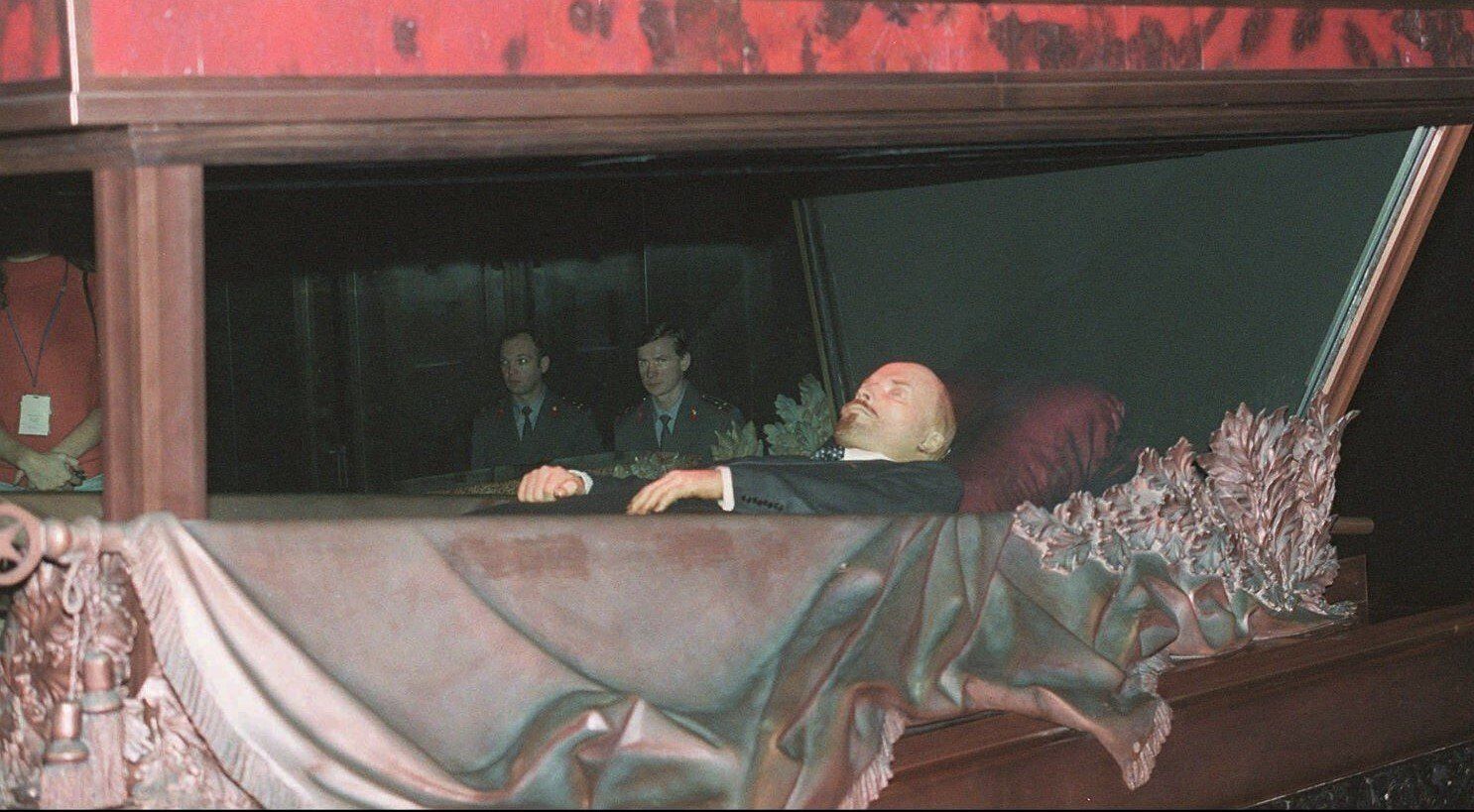
The one whom God raised up did not see corruption. --Acts 13:37 Martha, the dead man's sister, said to him, "Lord, by now there will be a stench; he has been dead for four days." --Jn 11:39 When USSR founder Vladimir Lenin died in 1924, Joseph Stalin was adamant Lenin should be preserved as a socialist saint: After death do us part: How Russian embalmers preserve Lenin and his ‘colleagues’ The embalmers “made around 20 incisions, drilled holes in the skull (the brain and eyes had already been removed, along with most other internal organs) and put the leader in a bath of formaldehyde for a couple of weeks to kill germs and bacteria – ultimately preventing further decay.” It takes a lot of work to keep someone looking good forever. Lenin is on display in Red Square. "Cryonics (from the Greek, kryos, meaning 'cold') is the low-temperature freezing (usually at −196 °C or −320.8 °F or 77.1 K) and storage of a human corpse or severed head, with the speculative hope that resuscitation may be possible in the future. As of 2014, about 250 corpses have been cryogenically preserved in the U.S., and around 1,500 people have signed up to have their remains preserved. Since 2016, four facilities exist in the world to retain cryopreserved bodies: three in the U.S. and one in Russia" (Wikipedia). Instead of resurrection, they await defrosting. Probably the most impossible modern-day miracles to scientifically explain are the Incorruptibles. The natural preservation of Saints’ bodies, after being dead many, many years, is a particular problem for skeptics. On display, openly defying the laws of nature, they are known as the Incorruptibles. Without any chemical embalming, the corpses are “lifelike, flexible, and sweetly scented.” 1 There are 102 Saints who, after their bodies were exhumed, never decayed, a foretaste of the resurrection. Just one example, St. Bernadette Soubirous of Lourdes, who claimed the Mother of God appeared to her and called herself the Immaculate Conception, looks like she’s about to awaken from sleep, considering she passed over 140 years ago: St. Bernadette body Incorruptibility I was a subscriber to the Committee of Skeptical Inquiry, CSI, which publishes the quarterly newsletter, The Skeptical Inquirer. The committee is made up of scientists, atheists, even magicians, all to disprove the paranormal. Part of their purview is to try to discredit miracles. In the ten years I was a subscriber, I never saw a debunking of the Incorruptibles. What could they say? To those who believe, no explanation is necessary. To those who do not believe, no explanation will suffice. Bonus: The latest Incorruptible, in Missouri? Show me: Sister Wilhelmina ________________ 1. With over 300 pages of facts and photos, “The Incorruptibles” is a fascinating read. Joan Carroll Cruz, The Incorruptibles , (Rockford, Illinois: Tan Books and Publishers, 1977), p. 27.

I am the living bread that came down from heaven; whoever eats this bread will live forever; and the bread that I will give is my flesh for the life of the world. -- Jn 6:51 Want to get as close to God as possible in this life? Then go to Mass and receive Communion. Experience the mystery of "Christ in you, the hope for glory" (Col 1:27). The only miracle recounted in all four gospels, and twice in Mark and Matthew, is the multiplication of the loaves (Mt 14:13-21, New American Bible commentary). Obviously, this miracle held huge significance to early Christians, prefiguring the Holy Sacrifice of the Mass. The first miracle in John, changing water into wine at a wedding (Jn 2:1-11), foretells the changing of one substance into another, at Mass. Incidentally, Jesus made 180 gallons of top-notch wine at that wedding. I always knew God was a partier. At the Last Supper, Jesus ritualized the Mass, commanding that his sacrifice be memorialized: “He took the bread, said the blessing, broke it, and gave it to them, saying, ‘This is my body, which will be given for you; do this in memory of me.’ And likewise the cup after they had eaten, saying, ‘This is the new covenant in my blood, which will be shed for you’” (Lk 22:19-20). During Mass, Jesus, acting through the Roman Catholic priest, in Christ’s name, in Christ’s power, changes bread and wine into Christ’s Body and Blood. "The Eucharist is thus a sacrifice because it re-presents (makes present) the sacrifice of the cross, because it is its memorial and because it applies its fruit: "Christ, our Lord and God, was once and for all to offer himself to God the Father by his death on the altar of the cross, to accomplish there an everlasting redemption. But because his priesthood was not to end with his death, at the Last Supper 'on the night when he was betrayed,' he wanted to leave to his beloved spouse the Church a visible sacrifice by which the bloody sacrifice which he was to accomplish once for all on the cross would be re-presented, its memory perpetuated until the end of the world, and its salutary power be applied to the forgiveness of the sins we daily commit" (Catechism of the Catholic Church 1366). The Holy Sacrifice of the Mass perpetuates the sacrifice of Jesus on the cross. St. Paul concurs: “For as often as you eat this bread and drink the cup, you proclaim the death of the Lord until he comes” (1 Cor 11:26). Jesus, however, is not being crucified again. Rather, we are sharing in his one eternal sacrifice and triumph over sin, death, and the devil. The separation of Body and Blood during the consecration at Mass signifies Jesus' death on the cross, when Christ's Blood was separated from his Body. God’s saving deed is timeless. That’s why the Lamb, Jesus, in Revelation is seen as slain (Rev 5:6). “Christ is the Paschal Lamb without blemish, whose blood saved the new Israel from sin and death. 'The Lamb' is the main title for Christ in Revelation, used twenty-eight times” (NAB commentary). Recall that Jesus was still scarred after his resurrection from his eternal sacrifice: "Look at my hands and my feet" (Lk 24:39); "Jesus showed them his hands and his side" (Jn 20:20). Catholics have a crucifix above their altar, but non-Catholic Christians display only a cross. St. Paul has no problem with a crucifix, "for I resolved to know nothing while I was with you except Jesus Christ and him crucified" (1 Cor 2:2). "The sacrifice of Christ and the sacrifice of the Eucharist are one single sacrifice: The victim is one and the same: the same now offers through the ministry of priests, who then offered himself on the cross; only the manner of offering is different. In this divine sacrifice which is celebrated in the Mass, the same Christ who offered himself once in a bloody manner on the altar of the cross is contained and is offered in an unbloody manner" (CCC 1367). A listener asked EWTN’s Dr. David Anders if the Mass and Crucifixion are the same sacrifice; at Mass are you present at Calvary? Dr. Anders, a former Presbyterian, clarified that: “The Council of Trent taught that the Mass and Calvary are specifically the same and numerically different. Each individual Mass is a distinct oblation [offering] that is distinct from Calvary. “There is a common but erroneous view that the function of the Mass is to serve as a time-capsule or time vehicle that carries you supernaturally back 2,000 years so that the only sacrifice at which you are present is the historical sacrifice of Christ at Calvary. That position is false. “That’s the Calvinist position, the Protestant position, repudiated by the Council of Trent and repudiated again by Pope Pius XII. The Council of Trent, St. Thomas Aquinas, and Pius XII taught--this is the faith of the Catholic Church--that the same victim who died on Calvary, Jesus Christ, who died in a bloody manner on the cross, that same victim is present on the altar of sacrifice at the Mass through transubstantiation, but in an unbloody fashion. “He’s not killed on the altar at Mass. In fact, he’s glorified, but nevertheless the same victim who died at Calvary is present at Mass, once in a dying fashion, now in an undying, never-to-die-again, unbloody fashion. “The priest who offered the sacrifice at Calvary, namely Jesus, was present at Calvary; the same priest is present at Mass through the person of the ministerial priest. Christ makes his own intention present, namely, to offer his Body and Blood to the Father in reparation for the sins of the world. “The reason why Christ died at Calvary, to reconcile God and man, is also present in the sacrifice of the Mass, which is why they are specifically the same. But they are numerically distinct so that each individual Mass is its own oblation; it’s not simply a time portal to the past. A priest can say Mass on Monday for Aunt Edna; on Tuesday for my knee surgery; and on Wednesday for peace in the world” (EWTN’s Called to Communion , 3/22/24, @18 mins.) Dr. Anders "In the Eucharist the sacrifice of Christ becomes also the sacrifice of the members of his Body. The lives of the faithful, their praise, suffering, prayer, and work, are united with those of Christ and with his total offering, and so acquire a new value. Christ's sacrifice present on the altar makes it possible for all generations of Christians to be united with his offering" (CCC 1368). Jesus’ Resurrection is also being celebrated at Mass. Through Christ's victory, God is able to transform bread and wine into Jesus' Body, Blood, Soul, and Divinity. "The whole Christ is truly, really, and substantially contained in the sacrament of the Holy Eucharist" (Council of Trent, Session xiii, October 11, 1551). This transformation is more accurately termed “transubstantiation,” meaning to change one substance into another. “The cup of blessing that we bless, is it not a participation in the blood of Christ? The bread that we break, is it not a participation in the body of Christ?” (1 Cor 10:16), St. Paul rhetorically asks. We celebrate by the victory of his Resurrection. "It is by the Breaking of Bread “that his disciples will recognize him after his Resurrection, and it is this expression that the first Christians will use to designate their Christian assemblies; by doing so, they signified that all who eat the one broken bread, Christ, enter into communion with him and form but one body in him" (CCC 1329). The Church is the Church of the Most Blessed Sacrament as it is the Sacrament of sacraments. “The blessed Eucharist is the sacrament. Baptism exists for it; all the others are enriched by it” (Frank Sheed, Theology for Beginners, 1957 ). The Eucharist is the “source and summit of the Christian life” (CCC 1324). Every devotion revolves around the “Real Presence” of Christ in the Holy Eucharist. Although in his divinity Jesus is omnipresent, he is substantively present Body, Blood, Soul, and Divinity--the whole Christ--in the Bread of Life and the Chalice of Eternal Salvation. He is present in the "very body which he gave up for us on the cross, the very blood which he 'poured out for many for the forgiveness of sins'" (CCC 1365, Mt 26:28), but with no physicality, in an unusual mode of being. The Holy Eucharist is Jesus Christ! Amazing, but true. The Holy Eucharist is the Whole Christ Because "Christ lives, death has no more dominion over him. The bread becomes his body, but where his body is, there he is; the wine becomes his blood but is not thereby separated from his body, for that would mean death; where his blood is, he is. Where either body or blood is, there is Christ, body and blood, soul and divinity. That is the doctrine of the Real Presence" (Sheed, 1957), also known as "concomitance." Holy Communion is real. St. Paul believed it is not symbolic: “Whoever eats the bread or drinks the cup of the Lord unworthily will have to answer for the body and blood of the Lord. A person should examine himself, and so eat the bread and drink the cup. For anyone who eats and drinks without discerning the body, eats and drinks judgment on himself” (1 Cor 11:27-29). If the bread and wine are symbolic, how could one partake unworthily? Or why should a person have to examine oneself before eating and drinking so as not to be condemned if they are merely bread and wine? It’s obvious St. Paul believes that the risen Christ is truly present in the Most Blessed Sacrament, or else he would not be so strict in his exhortation. Some disciples of Jesus had a hard time believing in Holy Communion: “How can this man give us his flesh to eat?” (Jn 6:52). But Jesus did not back down: "Amen, amen, I say to you, unless you eat the flesh of the Son of Man and drink his blood, you do not have life within you. Whoever eats my flesh and drinks my blood has eternal life, and I will raise him on the last day. For my flesh is true food, and my blood is true drink. Whoever eats my flesh and drinks my blood remains in me and I in him” (Jn 6:53-56). Since Jesus literally means eating his body and drinking his blood, “many of Jesus’ disciples returned to their former way of life and no longer accompanied him” (Jn 6:66). And Jesus let them go. If Jesus had been talking symbolically, he would be morally obligated to say so. But because he did not try to explain, he obviously meant it—and they took it—literally. When Jesus promises, “The one who feeds on me will have life because of me” (Jn 6:57), the Greek verb “feeds” means to “gnaw,” like an animal (NAB commentary), further emphasizing the real nature of the “bread from heaven” (Jn 6:50). After all, Christ was born in a feeding trough for animals, a manger (Lk 2:7), in Bethlehem, which means in Hebrew, "House of Bread." Eucharist is from the Greek, meaning thanksgiving. "The Eucharist is a sacrifice of thanksgiving to the Father—a blessing by which the Church expresses her gratitude to God" (CCC 1360). What a great gift God has given us—himself. Do we expect any less from Jesus? What boundless love God has for us to want to unite with us so closely. If all this is really going on at Mass, how could anyone miss Mass? It’s the greatest event in the universe. When we miss Mass, we miss a deep encounter with Christ. When we unite with Jesus in Holy Communion, we are as close as we can get to him this side of eternity. The best possible food to nourish Christ spiritually living in us, is Christ. "When we receive, we have a closer union with Jesus than the apostles had in their three years of companionship, closer than Mary Magdalene had when she clung to him after his Resurrection" (Sheed, 1957). Most joyfully is knowing that God loves us and wants to be incredibly intimate with us. "Taste and see that the Lord is good" (Ps 34:9), literally. Prayer after Communion: "Grant us, almighty God, that we may be refreshed and nourished by the Sacrament which we have received, so as to be transformed into what we consume. Through Christ our Lord." You are what you eat. "I am the bread of life. "--Jn 6:35a
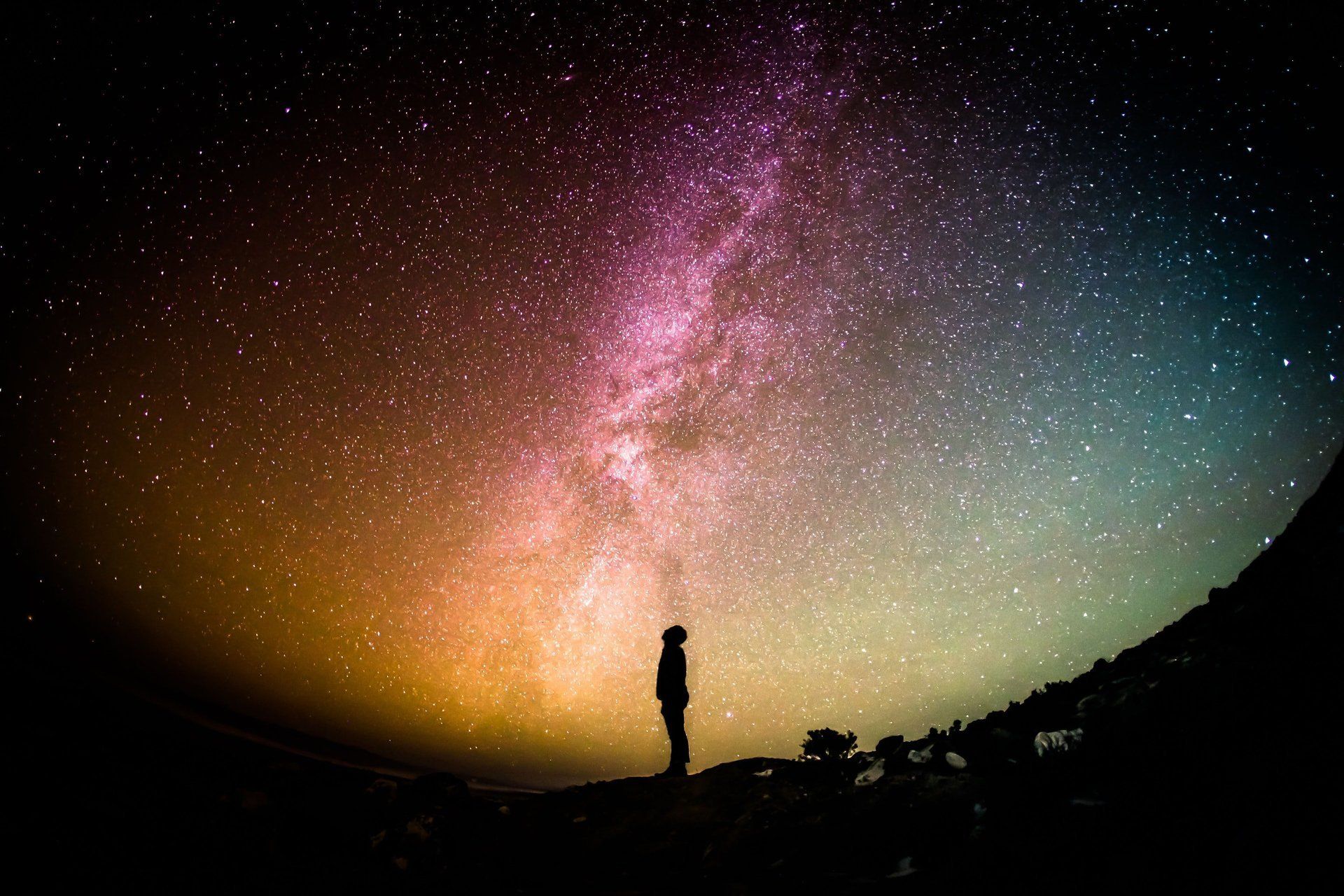
Have you heard? It’s in the stars. Next July we collide with Mars. --Bing Crosby and Frank Sinatra from the Cole Porter song What a Swell Party , from the movie High Society The heavens declare the glory of God . --Psalm 19:2 Besides the still-expanding, 93-billion-lightyear-wide universe exploding out of nothing, scientists are also at a loss to explain the universe's subsequent maintenance and order. The universe is a huge machine, with everything in constant, predictable motion. Any engineer will tell you that while it’s one thing to start a machine, it’s quite another to keep it going. The earth is rotating on its axis at a thousand miles per hour. You don’t feel it because the speed is constant, with no acceleration or deceleration. The moon is revolving around the earth, and the earth and planets of the solar system are revolving around the sun. The earth revolves around the sun at 67,000 miles per hour. The sun itself is zipping through space at the blinding speed of 143 miles per second , revolving around the center of our Milky Way galaxy, bringing the rest of us with it. It takes 230 million earth years, a galactic year, for the sun to make its revolution: Galactic year - Wikipedia Our Milky Way galaxy is moving even faster , at 373 mps or 1.3 million mph: How Fast Does the Milky Way Move? How could objects with no intelligence maintain such order and precision that you can set your watch by them? My stand-up routine: How come atheists aren't more worried? I’m nervous at my wife's distracted driving on our block at 20 mph. How can you go to sleep knowing the mindless sun is taking you for a ride at 143 mps with no stop signs? After all, one crash wiped out the dinosaurs. So if a cop asks, "Do you know how fast you were going?" say, "No, it's a complicated calculation." If he wants you to walk a straight line, tell him you can't; there's too much movement going on in the universe to walk a straight line. We're zooming in four different directions, at really high speeds. I'm dizzy. Yet you can walk a straight line despite the magnificent panorama playing out all around us. That's God. This incredibly complex and fast-moving symphony of the spheres shows that the same Being who created the universe also keeps it going. It is far more rational and probable that a sentient Being independent of the universe is responsible for its origin and maintenance. No worries.
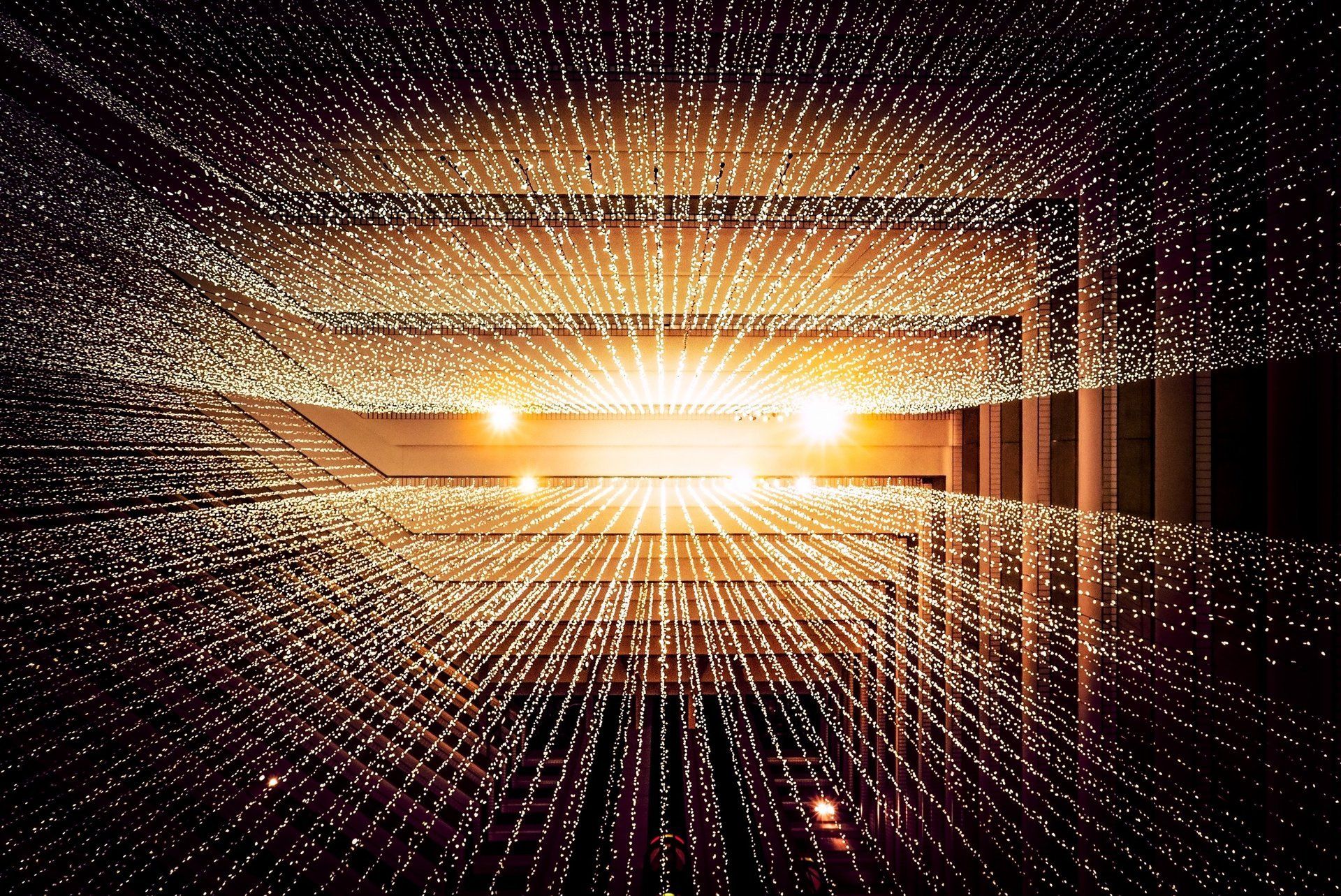
Presently, the Mystical Body of Christ is in three divisions: those in heaven, the Church Triumphant; those in purgatory, the Church Suffering; and those on earth, the Church Militant, battling it out. “At the present time, some of Jesus’ disciples are pilgrims on earth. Others have died and are being purified, while still others are in glory, contemplating in full light, God himself triune and one” (Catechism of the Catholic Church 954). Though the Body is in three different places and stages, we’re all connected, with Christ as head (Col 1:18). Jesus prays for those in the Body that "they may all be one, as you, Father, are in me and I in you, that they also may be in us" (Jn 17:21). "May we become one body, one spirit in Christ" (prayer at Mass after Consecration). Thus, the Body is spiritually but not physically linked. Like bees making honey we’re working toward a common goal--Thy kingdom come--behaving as a single organism. God is our ultrahigh speed wi-fi supplier. He’s never had a service stoppage or security breach. No password or user fee is required. The login is, In the name of the Father, and of the Son, and of the holy Spirit. Amen. Because “we are surrounded by so great a cloud of witnesses” (Heb 12:1), praying to the angels, saints, and souls in purgatory is really only going online, through God-xinfinity, and asking them to pray for us, the same way we ask those on earth. St. Dominic, dying, to his brothers, said, “Do not weep, for I shall be more useful to you after my death and I shall help you more effectively than during my life” (CCC 956). Certainly the ecstatic saints in heaven and the hopeful souls in purgatory are champing at the bit to do good. They're at the ready to plead for us, cheering on the next racers after crossing the finish line themselves. For there is "more joy in heaven over one sinner who repents" (Lk 15:7). How can we not avail ourselves of the Body and the angels--the Communion of Saints--when we pray, prefacing every petition, “I please ask Our Lady, all the angels and saints, and the souls in purgatory, to please pray for whatever”? God would be barraged by so many requests by so many friends of his that he may see it our way. Of course God already knows the future, as God is outside time. However, God previously included in his Providence people's free actions, including our prayers, which he knew before time began: "Your Father knows what you need before you ask him" (Mt 6:8b). “Simon’s mother-in-law was afflicted with a severe fever, and they interceded with him about her” (Lk 4:38). Why would such an intercession cease after death if someone asked for it, so long as we’re connected, which we are? God will upload users’ requests. “Faith, hope, love remain these three; but the greatest of these is love” (1 Cor 13:13). In heaven, though, faith is no more because one beholds the object of faith, God. Hope likewise disappears because one achieved the goal of eternal life. “Faith has yielded to sight and hope to possession” (NAB commentary). Love, though, remains. St. Therese of Lisieux: “I want to spend my heaven in doing good on earth” (CCC 956). I’ll take her up on the offer. What’s her email, StTL@heaven.org? "Another angel came and stood at the altar, holding a gold censer. He was given a great quantity of incense to offer, along with the prayers of all the holy ones, on the gold altar that was before the throne. The smoke of the incense along with the prayers of the holy ones went up before God from the hand of the angel" (Rev 8:3-4).

There are two versions of the end, Jesus’ return. The one that most believers think of is the fiery Parousia, the Second Coming, like Revelation: “There will be signs in the sun, the moon, and the stars, and on earth nations will be in dismay, perplexed at the roaring of the sea and waves. People will die of fright in anticipation of what is coming upon the world, for the powers of the heavens will be shaken” (Lk 21:25-26). A neighbor asked me if I thought now—during the pandemic--was the end. I said, No, our present plight is nothing compared to WWII, for example, where “nation will rise against nation, and kingdom against kingdom” (Mt 24:7). Instead, the trigger for the end is subtle and quiet. It’s not that life on earth gets so bad that God has to end it. Rather, the end will come silently, when the Body of Christ is complete. At that time, there will be no need for God to keep life on earth going because God's mission is accomplished. The completion of the Body, when the precise number of the saved is reached is the game-changer, but not necessarily dramatic or visible. A big leadup to the end may not be forthcoming. I prefer this less known presentation of the end, which is preliminarily calm and silent, like a thief, with no warning, "for at an hour you do not expect, the Son of Man will come" (Mt 24:42-44). When the end comes, people were just going about their business: “As it was in the days of Noah, so will it be in the days of the Son of Man; they were eating and drinking, marrying and giving in marriage up to the day Noah entered the ark, and the flood came and destroyed them all. "Similarly, as it was in the days of Lot: they were eating, drinking, buying, selling, planting, building; on the day when Lot left Sodom, fire and brimstone rained from the sky to destroy them all. So it will be on the day the Son of Man is revealed” (Lk 17:26-30). The end, then, comes strikingly, of course, but as a surprise. No one sees it coming because it’s not based on world events, but rather a spiritual one. "Therefore, stay awake, for you know neither the day nor the hour" (Mt 25:13). “Asked by the Pharisees when the kingdom of God would come, Jesus said in reply, ‘The coming of the kingdom of God cannot be observed, and no one will announce, “Look here it is,” or, “There it is.” For behold, the kingdom of God is among you’” (Lk 17:20-21), "thus shifting from an imminent observable coming of the kingdom to something that is already present in Jesus' preaching and healing ministry" (NAB commentary). The necessary terror of the Apocalypse is because at the Final Judgment the everlasting destiny of all will be confirmed. All will know the stark reality that some do, and some do not, want to be with God: “Many of those who sleep in the dust of the earth shall awake; some shall live forever, others shall be an everlasting horror and disgrace” (Dn 12:2).
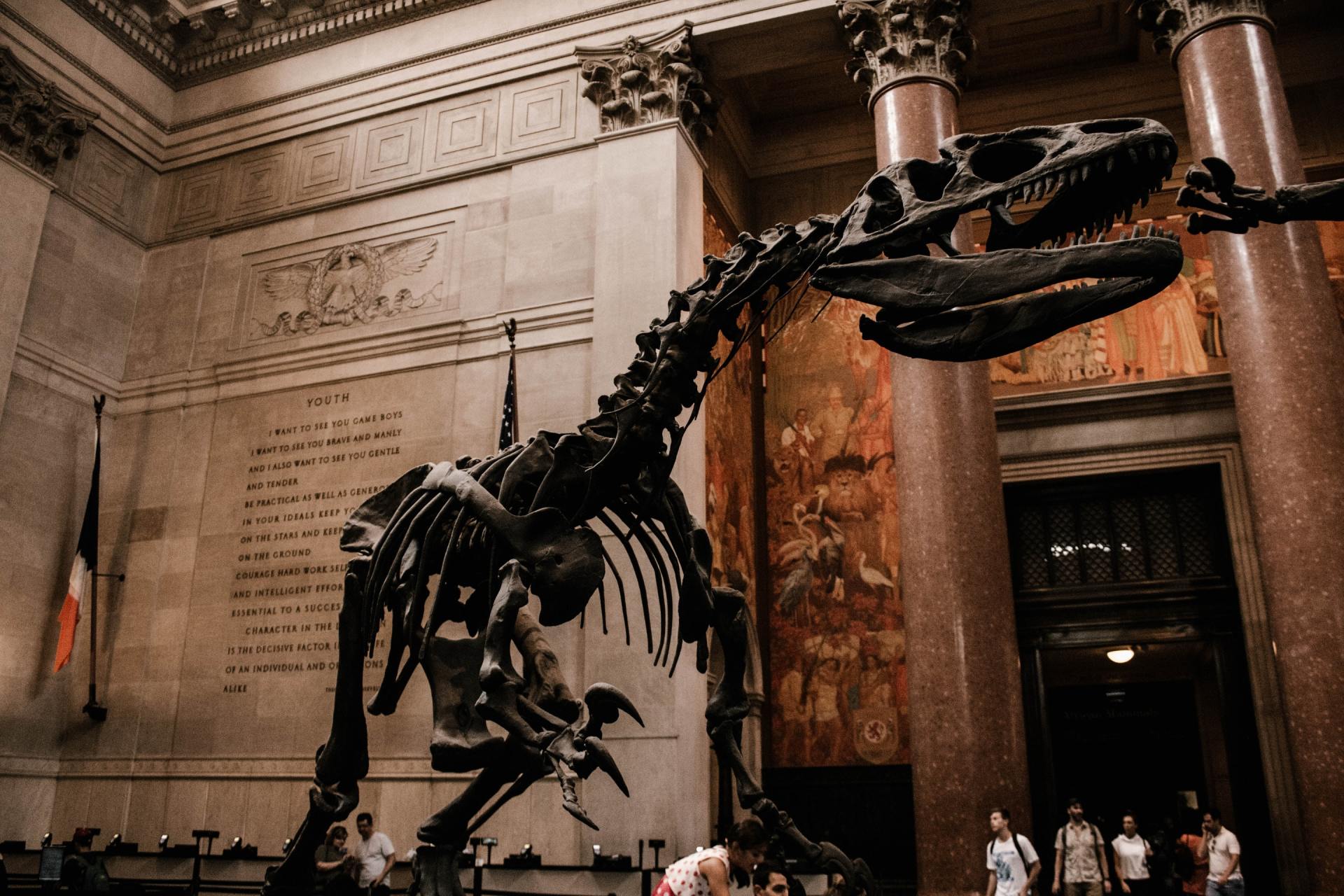
A man said to the universe: "Sir I exist!" "However," replied the universe, "The fact has not created in me a sense of obligation." -- Stephen Crane, poet, and author of The Red Badge of Courage All living creatures you sustain, Lord. --Psalm 36:7c Some think that to believe in evolution is to deny God. Nothing could be further from the truth. Life and its evolution affirm God’s existence. Charles Darwin boarded at the Anglican Shrewsbury School and graduated from Christ’s College, Cambridge. Darwin certainly knew Genesis, which is fairly accurate in its sequence of the origin of humanity: First the stars, “Let there be light” (Gen 1:3). Then the sun, night and day (5). Next is the ocean and land (9). Vegetation follows (11). The first creatures begin in the sea (20). Later, the land animals emerge (24). And finally, humans appear (26). How ironic it would be if Darwin came up with his sequence because of Genesis. Amazingly, 3.7 billion years ago, non-living matter began to organize itself into life. These simple forms of life—one-celled creatures—then evolved into more and more complex multicellular forms resulting in the staggering diversification of life found today. The problem is that the universe—on its own—cannot make life from non-living matter, and then take that life and make it evolve. Some find it difficult to reconcile their faith with evolution, but not Pope St. John Paul II: “The theory of evolution is more than a hypothesis. The convergence of results in scientific work, conducted independently, is in itself, a significant argument in favor of this theory.”1 What's the difference how we got here? Christ still came. There is too much evidence not to believe in evolution. How can one explain away the dinosaur room in the NYC Museum of Natural History? We have to be open to the truth. God is Truth. Thus all scientific truths ultimately point to God. Evolution is common sense. For example, the reason many pesticides eventually fail is because the few surviving bugs obviously have some genetic resistance. Their offspring will likewise be resistant. Thus, a change in the environment, the pesticide, altered the species. Over billions of years, big changes can happen. Evolution, though, depends on God. The reason that life and its evolution could not happen without God’s intervention is the “Second Law of Thermodynamics.” Don’t be bothered by the term; it’s a simple concept. The second law of thermodynamics explains what happens to everything, a book, a car, your body, the universe, over time—they fall apart. Any college chemistry text states this law: The entropy or disorder of the universe is constantly increasing. Entropy is a measure of the randomness of a system. The direction of all natural events is toward disorder. Every spontaneous chemical and physical change increases the total entropy of the universe. By itself, the universe breaks down order into disorder. It never builds things up. We instinctively know this, although we may not realize it. Basically, as Stephen Hawking, one of the greatest astrophysicists of our time, said: “Entropy is a form of Murphy’s Law: Things always tend to go wrong.”2 For example, a vase on a stand is in a higher state of order than if it falls to the floor and breaks. Anyone could tell you which vase was “before,” and which one was “after.” People have seen a vase fall and break, but no one has ever seen a broken vase put itself together and go back on a stand (except when a movie is reversed). The broken vase is now at a lower energy level, with less potential energy and less order. One day, the universe will run down because all its energy will be in the lowest form, heat, which then dissipates, leading to the Big Chill, a dead universe. St. Paul observes the obvious, that "creation was made subject to futility" (Rom 8:20a). Heat Death of the universe Because the direction of all natural events is toward disorder, entropy is sometimes referred to as “time’s arrow.” As time goes forward, disorder increases. Based on entropy, it’s easy to figure out “before” and “after” to every natural and spontaneous event. The universe can give an illusory appearance of increasing order, like when water freezes. Entropy still increases, though, because of the heat lost in becoming ice. However, this apparent increase in order is transitory and there's never a next step in complexity. Opening the door to an air-conditioned room shows the universe decreases order. Having cold air in a closed room and hot air outside is order. The difference in concentration between the two air masses is a concentration gradient. When the door is opened, however, the universe takes over. Hot air comes in, cold air goes out, and disorder increases until the temperature is uniform. When a balloon pops, the entropy of the universe increases. In an air-filled balloon, the molecules of air have a certain degree of order because they are close together. Their movement is limited by the balloon. After the balloon pops, though, the air molecules expand into the atmosphere, with much more random, disordered movement. They aren’t able to stay together. Since the universe is always increasing disorder, how could life—which is the epitome of order—begin unless something independent of the universe--also known as God--brought it about? And how could life then evolve into more diverse and complex forms without divine intervention? Life’s progression has been a continual increase in order, yet the universe can only make disorder increase. In previous examples, “after” always meant less order than “before.” That’s not the case, however, with life and its evolution. Scientifically speaking, one is compelled to believe in God. By itself, the universe is obviously not capable of making life come from non-living matter, and then taking that life and making it more diversified and complex. In other words, life and its magnificent, breathtaking evolution could not happen without God. The famous Miller-Urey experiment, which recreated the conditions of primitive earth, led to the formation of amino acids, which are the building blocks of life. However, the simple amino acids did not combine to form more complex proteins or anything resembling primitive life. A big letdown. It's just a one step, dead end, with no increase in complexity, like water to ice. In over 70 years, scientists can't go past that first step. Miller-Urey experiment Prolific science author and atheist Isaac Asimov's spurious argument is that although the total disorder of the universe is increasing, there may be pockets or islands where there is an increase in order, such as life on earth, for example. The mistake here is that entropy is a uniform phenomenon affecting all areas at all times which would not allow the steady 3.7 billion year progression of life from simple to complex, disorder to order. Remember the textbook statement: “The direction of all natural events is toward disorder.” Life is a supernatural event. Entropy troubled Dr. Asimov; he knew that having life, despite entropy, challenged atheism. So he wrote a short story, his favorite, about how a computer becomes God to overcome entropy, no fooling: The Last Question Entropy is not selective, allowing some parts of the universe to be affected by it and other parts not to be. It would be the same as a balloon bursting and all the air molecules staying together and becoming more concentrated. Imagine how impossible it is for an apple to jump up from the ground to a tree. Consider the likelihood of food coloring staying completely together and intact in water. Think of how incredibly odd it would be if an air-conditioned room with its door opened kept the same concentration gradient as if the door were closed, with cold air on one side and hot air on the other. These events are too unlikely. And you'd have to do them for 3.7 billion years. Yet that’s what life continually does in combating entropy by increasing order. Hence, life and its evolution could not happen on its own. God is responsible. God overcomes entropy. Because we’re alive proves God exists. Our bodies are constantly battling entropy. The universe abhors life’s order. We are under continuous assault, in countless ways, by the environment. At every moment the universe is trying to destroy us. We usually do not realize it because our bodies are doing such a good job of putting up a fight. Gravity is pulling our blood down while our hearts are pumping it up. The outside temperature tries to change our steady internal temperature. The universe tries to break up our highly ordered bodies into randomness, the same way food coloring diffuses in water. Our bodies fiercely fight back, attempting to remain intact with a controlled internal environment, also known as homeostasis. One day, though, the universe will win the battle, turning us back into dust, the original elements we’re composed of. When you die, the entropy of the universe will have increased, for the universe brought your highly ordered living body to a halt and began breaking it down into its disordered components. There is just one problem: There should not even be a battle. The indifferent, belligerent universe cannot simultaneously maintain you and destroy you. It can do only one, all the time. While the cold, mindless universe is trying its best to annihilate us at every moment, the average person is making 2 to 3 million red blood cells per second or 200 billion red blood cells a day, and breaking down 200 billion! How Many Cells Are in the Human Body? Types, Production, Loss, More To describe all the actions your body does to maintain order using the nervous, cardiovascular, respiratory, immune, urinary, muscular, skeletal, digestive, and other complex systems requires a thick physiology text. A doctor can only clean, apply ointment, and bandage a wound. God heals it by directing the universe. The aloof, callous, hostile universe by itself is of no help. Quite the contrary, the universe would like to see your cut become infected and do you in. You're much too ordered. One human cell's DNA, for example, contains a code that's comprised of six billion units , unique to that person . All the information needed to make that person is in their DNA, far, far more complicated than any computer code: Introduction - Mapping and Sequencing the Human Genome ... The mindless universe on its own is not capable of naturally generating such an astounding degree of complexity for every person who's ever lived on earth, including the current eight billion. God obviously governs the universe. The degree of order in a living being is astonishing. That’s the miracle of life. Every person is being held in existence by God's will alone. Without intelligence, all the parts of the body are working purposefully together to maintain homeostasis. The universe, however, cannot perform the complex processes that take place in the human body to overcome entropy while attempting, at the same time, to destroy those processes by entropy. The threatening universe cannot be on both sides. The universe can do only one thing all the time: increase disorder. The universe is consistent. The unknowing, uncaring, menacing, destructive universe has no choice in the matter. The only explanation is that God creates life, sustains life, and guides its evolution by directing the universe. God is the Intelligence that enables life to overcome entropy at every moment, and with such vigor, in every generation. Praise God. "For in him we live and move and have our being" (Acts 17:28). _____________________________ 1. “Message to Pontifical Academy of Sciences on Evolution,” Origins, CNS Documentary Services, 5 Dec. 1996, p. 415. 2. Stephen Hawking, A Brief History of Time , New York: Bantam Books, 1988, p.144.
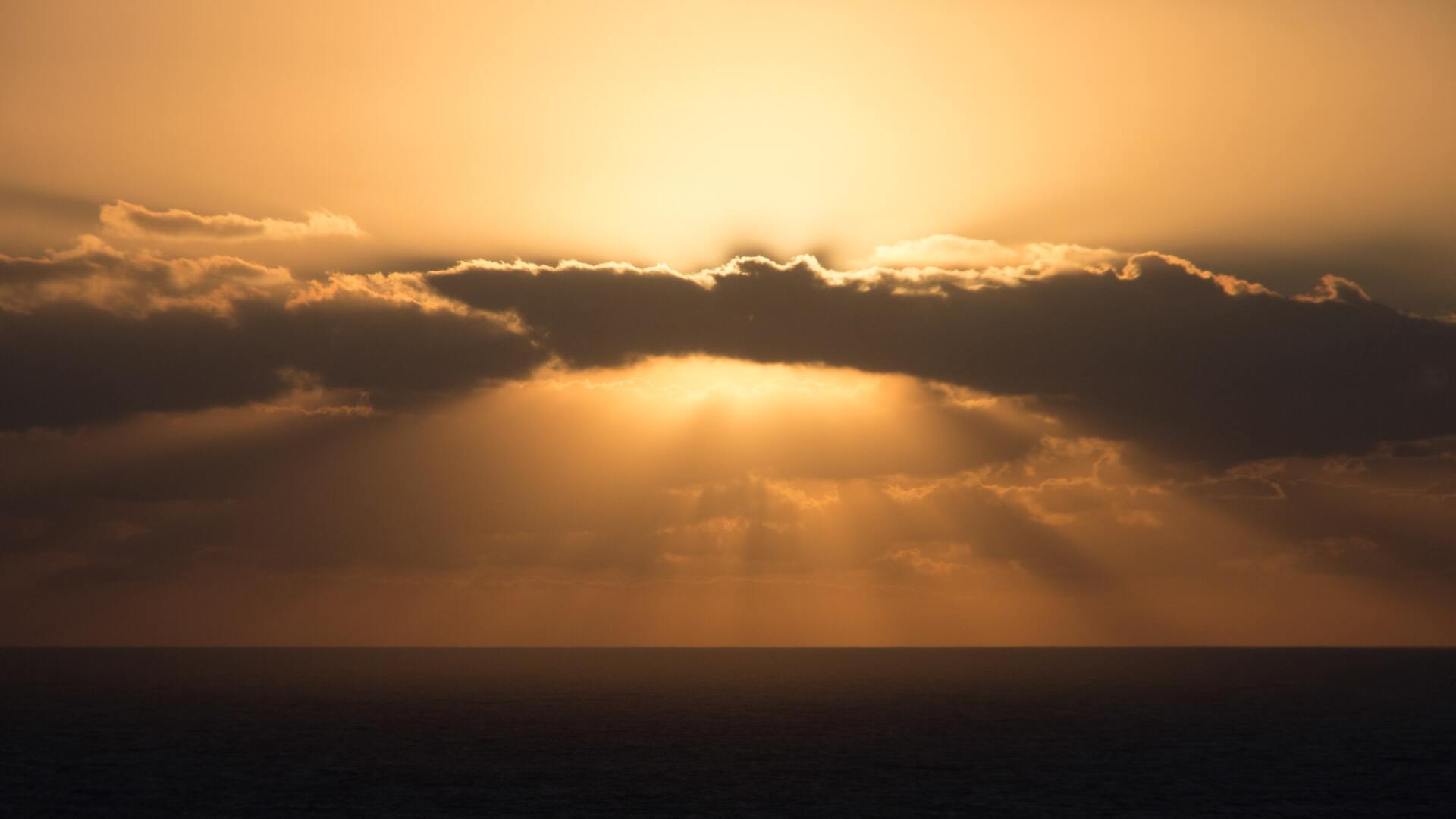
What follows is my take on C.S. Lewis’ idea: “I am trying here to prevent anyone saying the really foolish thing that people often say about him: I'm ready to accept Jesus as a great moral teacher, but I don't accept his claim to be God. That is the one thing we must not say. A man who was merely a man and said the sort of things Jesus said would not be a great moral teacher. He would either be a lunatic — on the level with the man who says he is a poached egg — or else he would be the Devil of Hell. You must make your choice. “Either this man was, and is, the Son of God, or else a madman or something worse. You can shut him up for a fool, you can spit at him and kill him as a demon or you can fall at his feet and call him Lord and God, but let us not come with any patronizing nonsense about his being a great human teacher. He has not left that open to us. He did not intend to. Now it seems to me obvious that He was neither a lunatic nor a fiend: and consequently, however strange or terrifying or unlikely it may seem, I have to accept the view that He was and is God.”1 Does Jesus embody God’s qualities? Unlike philosophers who say this is the way, Jesus says, “ I am the way and the truth and the life” (Jn 14:6). Jesus declares he is God: “Whoever sees me sees the Father” (Jn 14:9); says he always existed: “Before Abraham came to be, I AM” (Jn 8:58); foretold the future: “the Son of Man will be handed over” (Mk 10:33); forgave wrongs that didn’t directly involve him: “Child, your sins are forgiven” (Mk 2:5); multiplied bread: “They all ate and were satisfied” (Mt 14:20); never sinned: “Can any of you charge me with sin?” (Jn 8:46); controlled the weather and sea: “He rebuked the wind and the waves” (Lk 8:24); healed the sick: “The blind regain their sight” (Lk 7:22); raised the dead: “Little girl, arise” (Mk 5:41); gave a new commandment: “Love one another” (Jn 13:34); said he would judge the world: “He will separate them one from another” (Mt 25:32); and did many other things only God would be able to say and do. (How could fishermen, a tax collector, and the rest of that crew have thought all this up, anyway?) Jesus is either lying, crazy, or telling the truth. There is no middle ground with Jesus. One cannot say he is just a good man or only a moral teacher because he claims he is more: “I am the light of the world” (Jn 8:12). If Jesus isn’t whom he claims to be—namely God—then he’s a bad man for telling such a big lie. Or he’s crazy for thinking he’s God. Jesus is either a liar, a lunatic, or the Lord. Guards sent to arrest Jesus attest to his unique viewpoint: “Never before has anyone spoken like this one” (Jn 7: 46). Jesus is Lord. ----------------------- Lewis, C. S., Mere Christianity , London: Collins, 1952, pp. 54–56.

You Can't Go Home Again --Novel by Thomas Wolfe In the gospels, Jesus never uses his divine power to work miracles for himself or his family. All Jesus' miracles are to help others or be signs for belief or both. When Jesus was hungry from fasting forty days, the devil suggested Jesus turn stones into bread (Mt 4:1-4). “Jesus refuses to use his power for his own benefit and accepts whatever God wills” (NAB commentary Mt). Jesus does eventually multiply the loaves, but only because his hearers are hungry. In the apocryphal Infancy Gospel of Thomas, Jesus does help his family using miracles, which is one of many reasons this gospel was rejected. For example, he stretches a beam of wood that was too short to help his father finish constructing a bed: Infancy Gospel of Thomas Jesus’ return to the synagogue in his hometown of Nazareth (Lk 4:16-30), where he grew up, starts off fine, but ends quite badly, precisely because of this self and family miracle prohibition. After his reading Isaiah, “all spoke highly of him and were amazed at the gracious words that came from his mouth. They also asked, ‘Isn’t this the son of Joseph?’” Jesus, however, oddly replies, “Surely you will quote me this proverb, ‘Physician, cure yourself,’ and say, ‘Do here in your native place the things that we heard were done in Capernaum.’” Familiarity breeds contempt. Traditionally, St. Joseph, patron of a happy death, died before Jesus’ public ministry: Francisco Goya, Sketch for the Death of St. Joseph Thus, Jesus is picking up that the townspeople are implying, “Why didn’t you heal your father? You’re healing all these strangers in Capernaum, yet you let beloved Joseph die.” Jesus tells them, this attitude is why prophets Elijah and Elisha were sent to non-Israelites. When they heard Jesus’ response, the people in the synagogue were furious. They drove Jesus out of town, wanting to throw him headfirst off a cliff. Jesus somehow passes through the crowd and gets away. Jesus never went back to Nazareth again. "No prophet is accepted in his own native place" (Lk 4:24).